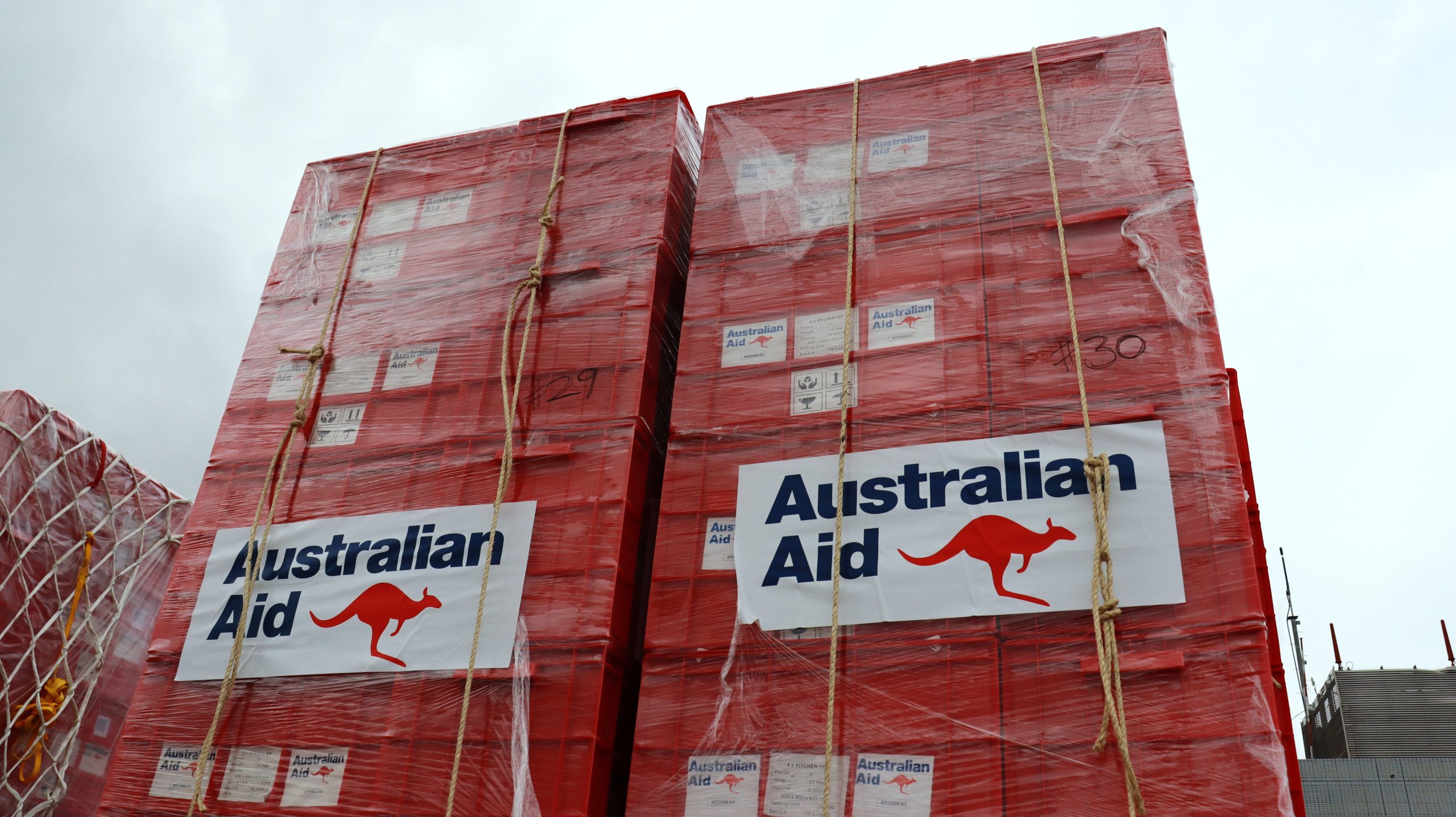A May edition of the Development Intelligence Lab’s “The Intel” asked three experts to reflect on the case for “doubling down on governance efforts in the development program”.
Graham Teskey started by acknowledging the main objection to aid for governance, namely that “it doesn’t work”. However, he then failed to provide any counter to that argument, establishing only that governance “matters for development”. Of course it does, but that doesn’t mean that it can be improved by aid.
The other two contributors echoed Graham’s argument about the importance of governance, but likewise failed to establish that donor programs can influence it. Jennifer Kalpokas Doan pointed to the importance of supporting local initiatives for change. That’s good advice, but still doesn’t answer the question of how much influence aid can have. Lisa Denney asserted that aid can promote important “principles and values”. Can it?
Graham mentioned Stefan Dercon’s book, Gambling on development. In it, Dercon argues that development success depends on whether the elites of a country decide to prioritise economic growth, and that aid can nudge them in that direction. It’s an interesting read but, as I pointed out in my review of that book, while Dercon gives plenty of examples of the importance of elite bargains, he doesn’t give any evidence at all to support his claim that outsiders can, as he asserts, “through development-focused international policy-making and careful use of foreign aid, persuade the [national] elites to gamble on a better bargain”.
Indeed, the more development practitioners put the emphasis – and rightly – on politics as the root cause of good or bad governance and successful or unsuccessful development, the more sceptical I become that aid can influence governance in a fundamental way. What purchase does aid have in relation to domestic politics? Very little: no matter how clever our aid efforts, domestic politics are very difficult to influence with outside dollars.
In the second half of my two-part review of Dercon’s book, I gave my own view of how we should think about aid in relation to governance:
If I had to summarise from the vast and disparate post-war experience, I would say that aid can be a source for both harm and good, but that it usually has little impact on underlying national political bargains. Aid typically involves relatively small amounts of money, and we need to be realistic about what it can achieve. This is not to say that all aid should be given over to practical tasks such as health delivery or road building. Of course, technical assistance and less tangible forms of aid should be part of the mix. And there are few easy decisions. We should worry about the distorting impacts of aid, and try to minimise them. But aid should aim to be useful rather than transformational. And it should, as a first approximation, take a country’s political bargain as a given, not something that it can seek to influence.
We should be particularly sceptical about aid for governance given that the focus of Australian aid has shifted to the Pacific. It is one thing to say that the aid program can make a useful contribution to governance in Indonesia: establishing a large tax payer unit here, piloting social protection programs there. These are ideas that Indonesia’s political elite can buy into, and which the state has the capacity to implement. What about the Pacific though? According to the World Bank, the Pacific is the most poorly governed region in the world. Of the ten Pacific nations included in the Bank’s annual fragility assessment exercise, six are rated fragile, as is Timor-Leste.
I have long subscribed to the “governance paradox”, which is the idea that those countries that have the weakest governance are also those where governance is hardest to improve. In such countries, the political barriers to development are so strong that aid efforts to promote governance often have no effect at all, or even a negative one. Aid might be able to prevent a complete collapse (which perhaps RAMSI did in Solomon Islands), but it can’t turn a fragile state into a non-fragile one.
(The Pacific is also the most aided region in the world. This doesn’t repudiate the claim that aid can make more than a modest difference to governance, but it certainly casts doubt on that argument.)
Yet another problem with the argument that we should double down on governance is that it is already the most important area of aid expenditure for Australia, as the graph below shows, using the way that DFAT itself categorises aid expenditure. While it is not always easy to categorise aid projects (what about one that tries to improve governance in education?), the priority given to governance interventions is clear.

I might not be convinced that we should double down in the aid program on governance, but the Australian government seems to be. The newly released Australia’s International Development Policy has as its first of four priorities supporting partner countries to “build effective, accountable states that drive their own development”. Important aid sectors such as health, education and infrastructure don’t even rate a mention in the four headline priorities. Infrastructure and health are squeezed under a heading of resilience, and education is somehow shoehorned into the goal of connecting with Australia.
The new policy really does give governance pride of place in the Australian aid program. To my mind, however, there are many other, more useful things that our aid program could be doing than doubling down on governance. For a start, I’d reverse the recent cuts in Australian aid to Rohingya refugees in Bangladesh.
Note: While education is included under the priority (one of four) of connecting with Australia in the new policy (see page 41), it is included under the priority of enhancing resilience in the new International Development Performance and Delivery Framework (see page 7).





Applying the recommendations in this article would land us on another “governance paradox”: countries with weak governance would get less governance support, with more aid circumventing existing governance systems, thus further undermining institutions.
Australian govt officials appreciate that DFAT governance investments gives them a reason/vehicle to engage with their local counterparts. However, offering a governance investment doesn’t change the local political economy of reform. PNG serves as a case in point.
Sharing this excellent review from Guo and co-editors, which does a great job of taking one important aspect of governance from its often hand-wavy, nebulous place to something precise and tractable.
https://voxdev.org/voxdevlit/bureaucracy
Thank you to everyone who commented, and I look forward to more! All of the comments are useful contributions and I think most don’t require a specific response from me. On Lisa’s excellent points, I think the examples she provides of where aid can make a useful difference are in line with my overall argument. Aid for governance can be helpful, but in small rather than big ways. I also agree with her that we could spend aid better, but that is true across the board.
In summary, I remain sceptical that we should in any sense give priority in our aid program to governance. That was really the point I was trying to make. Or, to develop that conclusion a bit, let’s double down on effectiveness rather than governance.
Thanks for taking up the debate Stephen! I do think your argument overlooks the second point I had made (and that Anthony raises above) about how governance is important precisely for sectoral outcomes. Since education, health and water and sanitation programs have integrated better understandings of the governance dimensions of those service delivery problems, development outcomes in those sectors have arguably improved (see all the ‘political economy analysis of [insert sector and country here] in the 2000s and 2010s). I think it’s pretty clear aid can play a role in improving sector outcomes by building in a stronger focus on governance.
On your wider point about whether governance can be improved by aid – this is tricky, because of course we don’t want to overclaim the role of aid – we know that change is driven primarily by local leaders. But we also know that external actors can play a role in supporting such leaders: providing resources and technical expertise, convening coalitions and providing platforms for collective action to form. There are good examples of this globally – from the DFID-funded British Council support to running localised political economy analysis training for activists in Sudan, which helped them position better in the overthrow of Bashir. In Vanuatu, former Women’s Affairs Director Dorosday Kenneth-Watson credits the DFAT-funded Pacific Leadership Program for providing useful funding to allow her to build a coalition to get reserved seats for women in Parliament. In the DFAT-funded Coalitions for Change in Philippines, the program supports ‘development entrepreneurs’ to pursue policy changes in a range of areas. All of this is governance support that has made a difference. Sure, aid can’t claim to have been in the driver’s seat, but it is nonetheless pointed to by local leaders as playing an important role in contributing to change. I think we need to be comfortable with that contributing, supporting, backseat role. It might not make for great splashy headlines on the impact of governance, but I think there are plenty of cases where it nudges in more positive directions. And that is what my original DevIntel post meant by aid being able to support principles and values. By supporting marginalised voices, promoting inclusion and equality, valuing contestation, aid itself can demonstrate the kind of governance Australia believes is important to the region.
Finally, I would also consider what is meant by ‘doubling down’ on governance. For me – and particularly in light of the economic data you provide – this is less about overall spend and more about the quality of that spend. A good place to start here would be for DFAT to re-establish core governance expertise, which has been significantly eroded. The volume of spending on governance alone is good reason to ensure that DFAT has requisite expertise on the topic to spend it well.
“A good place to start here would be for DFAT to re-establish core governance expertise, which has been significantly eroded. The volume of spending on governance alone is good reason to ensure that DFAT has requisite expertise on the topic to spend it well.”
Thank you Lisa: this comment strikes me as spot on.
Thoroughly enjoyed this response Lisa, and examples. We often see much of donor ‘governance’ badged spend goes towards helping achieve improved service delivery/TA across a variety of sectoral areas. It’s not strictly for governance as a sector in itself is but helping across other sectoral areas when you dig in. Aidworks data /program tagging only goes so far.
Revitalising the core governance expertise and reporting systems to match the spend in light of the new Policy seems a good place to start.
Thanks Stephen. What do senior officials in South East Asian countries think is the most valuable and useful part of the Australian aid program? I asked that very question to such senior officials years ago when I was in AusAID and involved in the drafting of the Australian Government’s White Paper review of Australian aid. It was particularly striking to me that almost all of the officials I interviewed quickly nominated Australian scholarships as the most valuable part of Australia’s aid program. In their responses, it was almost taken for granted that returning students would have acquired good, up to date, technical skills in relevant fields such as economics, statistics, project management, evaluation, health and education etc. And of course that was a benefit. But what many interviewees emphasised was that the “real value” was that their country was, through Australian and other overseas scholarships, potentially building up its own critical mass of INTERNAL AND DOMESTIC reform minded officials who could analyse and identify better approaches to pressing public problems. The interviewees frequently argued this would be more effective -and often more politically and socially sustainable- in generating reform than short term external consultants or 3 year, stand alone, aid project enclaves. The interviewees didn’t use the word “governance” per se. But you can’t help but think that having a critical mass of nationals; with up to date technical skills; and who had been exposed to seeing things done differently in Australia and other countries, was a potentially useful and long-lasting investment in initiating and implementing positive reforms. The vast majority of senior officials I interviewed in South East Asia certainly thought so.
Thank you Stephen for naming one of the Australian aid program’s sacred cows. It would be interesting to speculate what other program expenditures also fall into this category. I will suggest one that I have come across on many occasions – poorly designed ‘politically motivated’ programming intended to please local elites.
Thanks Stephen. Its also interesting for many governance programs what passes for engagement or commitment to governance reform from political elites, i.e. signing of MOUs or governance program launches where the Minister tells the DPs what they know they like to hear, rather than any track record of earlier engagement with reform. In my experience, national level governance bottlenecks are very difficult to change, and it does seems to be more difficult in the Pacific. Having said that, national level governance weakness have significant negative impacts on service delivery in other sectors such as health and education, especially at sub national level. To my mind, it makes it all the more important to focus on the ‘under the hood’ governance and financial management functions within health, within education etc, i.e. to support and strengthen these in spite of and to offset the weaknesses at national level. Some of the recent WB FinHealth and FinEd studies make a clear distinction between what Health or Education sector agencies have the capacity to change, vs the national level more intractable governance and PFM bottlenecks.